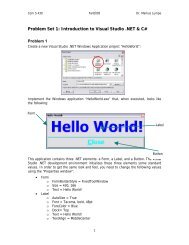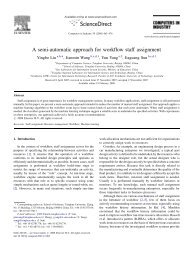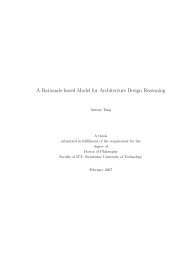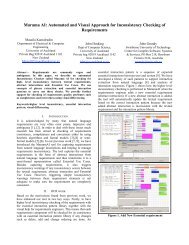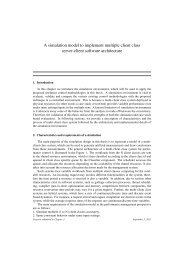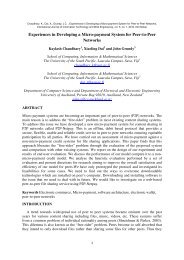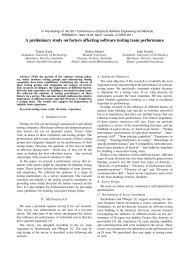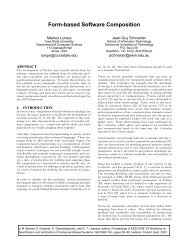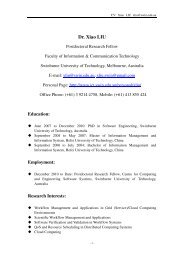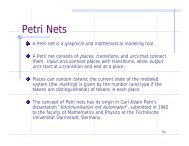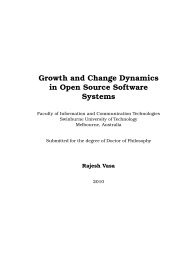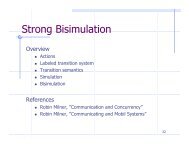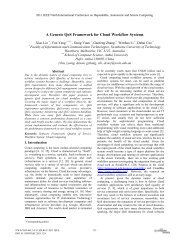Xiao Liu PhD Thesis.pdf - Faculty of Information and Communication ...
Xiao Liu PhD Thesis.pdf - Faculty of Information and Communication ...
Xiao Liu PhD Thesis.pdf - Faculty of Information and Communication ...
Create successful ePaper yourself
Turn your PDF publications into a flip-book with our unique Google optimized e-Paper software.
compensation, is believed as a suitable recovery action for temporal violation.<br />
One <strong>of</strong> the representative solutions introduced in [17] is a time deficit allocation<br />
strategy (TDA) which compensates current time deficit by utilising the expected<br />
time redundancies <strong>of</strong> subsequent activities. However, since time deficit has not been<br />
truly reduced, this strategy can only delay the violations <strong>of</strong> some local constraints<br />
with no effectiveness on overall constraints, e.g. the deadlines. On the contrary,<br />
workflow rescheduling [101] can indeed make up time deficit by expediting the<br />
execution <strong>of</strong> those not-yet-commenced workflow activities. However, since general<br />
workflow scheduling is an NP complete problem, extra cost is hence inevitable<br />
[100]. Up to now, there are few efforts dedicated to this topic. However, in order to<br />
deliver high temporal QoS in scientific cloud workflow systems, temporal violation<br />
h<strong>and</strong>ling plays a significant role. Therefore, it is important that cost-effective<br />
temporal violation h<strong>and</strong>ling strategies should be investigated. As for the<br />
measurement, the key criterion is their performance, i.e. how much time deficit can<br />
be compensated. Meanwhile, the cost <strong>of</strong> the compensation process (e.g. time<br />
overheads <strong>and</strong> monetary cost) should also be considered since it is unacceptable if<br />
the cost <strong>of</strong> the compensation process itself is significant, e.g. exceeding the expected<br />
cost such as the penalty brought by those temporal violations.<br />
2.6 Summary<br />
In this chapter, the literatures <strong>and</strong> problems for the recent studies related to the<br />
temporal QoS support in scientific cloud workflow systems including temporal<br />
consistency model, temporal constraint setting, temporal consistency monitoring,<br />
<strong>and</strong> temporal violation h<strong>and</strong>ling have been presented. Meanwhile, based on the<br />
literature review <strong>and</strong> problem analysis, the general requirements for temporal<br />
consistency model, constraint setting, consistency monitoring, <strong>and</strong> temporal<br />
violations h<strong>and</strong>ling have also been discussed.<br />
21



